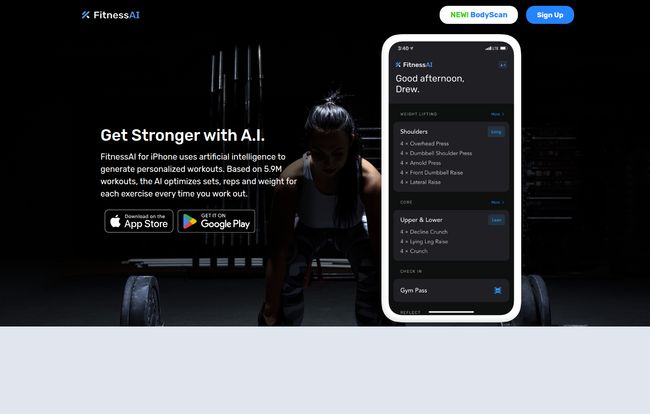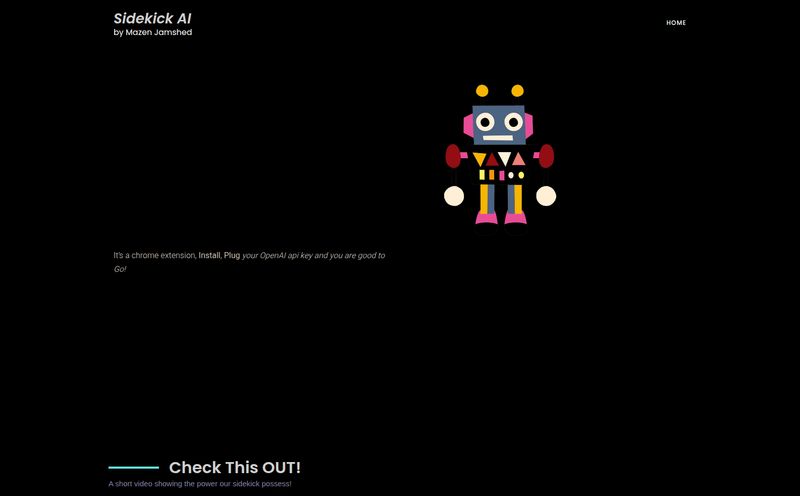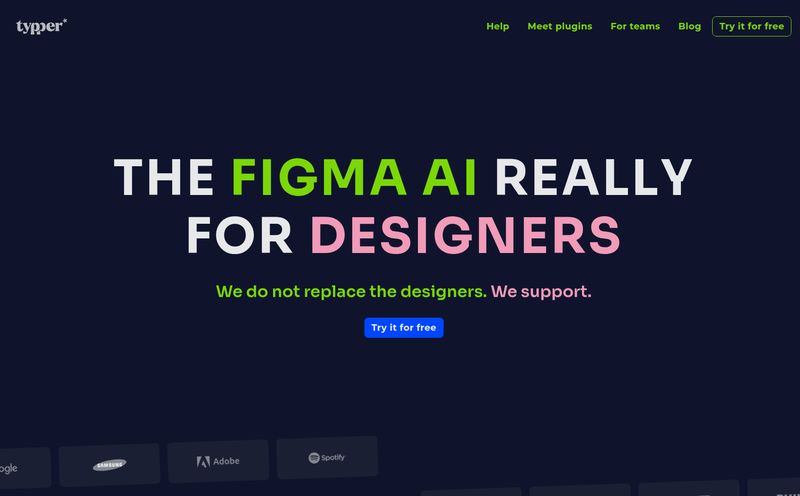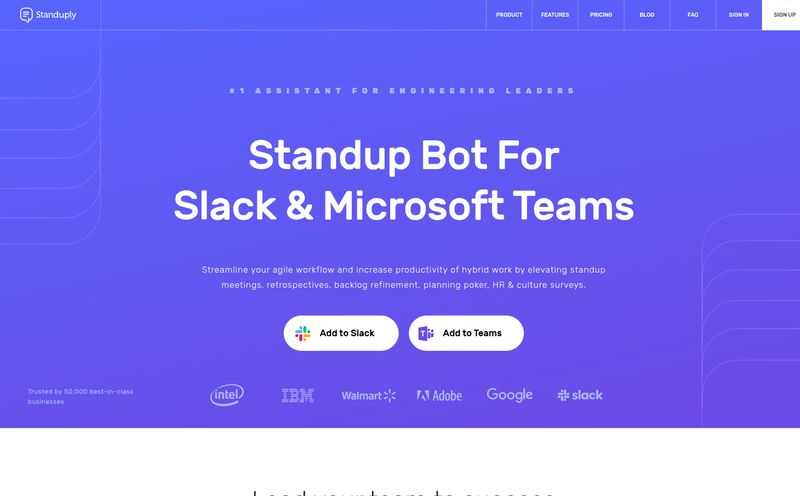We've all been there. You walk into the gym, full of motivation, and then... you just stand there. What should I do today? Chest day? Leg day? How many reps? How much weight? The sheer amount of information and bro-science floating around is enough to give anyone analysis paralysis. For years, the answer was either to hire a pricey personal trainer or just wing it, hoping for the best. I've personally spent more time scrolling my phone for a 'perfect' routine than actually lifting.
But the tech world, in its relentless march forward, has started to seep into the squat rack. We're talking about Artificial Intelligence. And that brings me to FitnessAI, an app that's been making some noise. It promises to take the guesswork out of getting stronger by using a powerful algorithm to tell you exactly what to do. But does it live up to the hype? As someone who lives and breathes data—be it for SEO or CPC—the idea of a data-driven approach to lifting definitely got my attention. So I dug in.
So, What Exactly is FitnessAI?
At its core, FitnessAI is an AI-powered weight lifting app for your phone. Simple enough. But the 'how' is where it gets interesting. It's not just a fancy workout logbook. The app's brain has been fed an enormous amount of data—we're talking over 5.9 million workouts logged by thousands of users. It chews on all this information to generate your next workout.
Think of it like having a super-nerd for a spotter. A spotter who has seen millions of people do millions of bench presses and knows the optimal progression path for someone just like you. It’s not about random workouts; it’s about a personalized, progressive overload plan designed to make you stronger, faster. The company even claims users lift about 20% more weight after just a month. A bold claim, for sure.
How This AI Gym Bro Actually Works
Using the app is refreshingly straightforward. You don't get bogged down in a million features you'll never use. The main loop is simple: you tell the app what you did, and it tells you what to do next. When you open it, it presents your workout for the day—the exercises, the number of sets, the reps per set, and the target weight.

Visit FitnessAI
Your job is to go to the gym, do the work, and then log it accurately. Did you manage all the reps? Did the weight feel too heavy, or maybe too light? You log this feedback, and the AI takes note. This is the crucial part. The algorithm learns from your performance. It sees you smashed your squat target and thinks, 'Okay, next time we're adding a little more weight.' Or maybe you struggled with the last set of overhead presses, so it might adjust the reps or weight for next week to ensure you can recover and still progress.
It’s a constant feedback loop. You lift, you log, the AI learns, and your next workout gets a little bit smarter. No more guessing games.
The Good Stuff: What I Liked About FitnessAI
First off, the simplicity is a huge win. The interface is clean and no-nonsense. It’s built for one thing: guiding your workout. I appreciate that. It gets you in and out, which is perfect when you're just trying to focus on your lifts.
The real magic, though, is the automated progression. This is the single biggest hurdle for most intermediate lifters. They know the basic exercises, but they don’t know how to structure their training week-to-week to keep making gains. This is called progressive overload, and it's the bedrock of strength training. FitnessAI automates this beautifully. It pushes you just enough, taking the mental load off your shoulders. It feels… liberating.
"After a few weeks, you start to trust the numbers it gives you. It feels less like an app and more like a plan that's actually reacting to you."
And I have to say, the progress tracking is incredibly motivating. Seeing your lift numbers slowly but surely creeping up in a graph is way more satisfying than just having a vague feeling that you're getting stronger.
Where It Stumbles a Bit
Now, it's not perfect. No app is. The biggest catch with FitnessAI is that its effectiveness is 100% dependent on you. It operates on a strict “Garbage In, Garbage Out” policy. If you're lazy with your logging, or you fib about how many reps you did (we've all been tempted), the algorithm gets bad data. And bad data leads to a bad plan. You have to be consistent and honest with your logging for it to work.
This also means it's probably not for the casual, once-a-week gym-goer. It’s built for someone with a consistent schedule. If you skip a week, the algorithm can adjust, but its predictive power is definitely strongest when you're feeding it regular data. I also have some reservations for absolute beginners. The app tells you what to lift, but it can't tell you how. It can’t correct your form on a deadlift or tell you that you're flaring your elbows on the bench. For a true novice, nothing beats a few sessions with a real-life trainer to nail down the fundamentals first.
Let's Talk Money: The FitnessAI Pricing Situation
Here's the million-dollar question, right? Or, hopefully, the not-so-many-dollar question. The official website is a bit coy about the price, which is pretty common for app-based services. You won't find a pricing table on their homepage. This typically means it's a subscription model handled directly through the Apple App Store or Google Play Store.
You'll likely download the app and be offered a free trial, followed by a monthly, quarterly, or annual subscription. These prices can change, so my best advice is to just go to the app's page on your respective store and check the latest details. I'd expect it to be in line with other premium fitness apps—cheaper than a personal trainer, but not free.
Who is FitnessAI Actually For?
So, who should hit that download button? In my opinion, the ideal user for FitnessAI is the intermediate lifter who feels stuck. You know your way around the weight room, your form on the big lifts is decent, but you've hit a plateau. Your progress has stalled, and you're tired of programming your own workouts. For this person, FitnessAI could be a game-changer, providing the structure and smart progression needed to break through to the next level.
It might not be the best fit for the absolute beginner who needs hands-on form correction. It's also probably not for the elite athlete who has a highly specialized program and works with a dedicated coach. This app is for the masses in the middle, the people who form the backbone of most commercial gyms.
My Final Verdict: Is It Worth a Download?
After spending some time with the concept and seeing what it offers, I'm genuinely optimistic. FitnessAI is a sharp, focused tool that does one thing very well: it uses data to build a smarter path to strength. It’s not a replacement for hard work and good form, and it's certainly not a magic pill.
But it is a powerful ally in the fight against gym plateaus and workout confusion. If you fit that intermediate profile and you're ready to commit to consistent logging, I think it's absolutely worth a look. It could be the very thing that gets your progress trending upwards again.
Frequently Asked Questions about FitnessAI
- How does FitnessAI create my workouts?
- It uses an AI algorithm that has analyzed over 5.9 million real-world workouts. It takes your past performance (sets, reps, and weight) to predict the optimal plan for your next session to ensure progressive overload.
- Is FitnessAI good for beginners?
- It's a maybe. While it solves the 'what to do' problem, it doesn't solve the 'how to do it' problem. For a complete beginner, learning correct and safe form is critical, and an app can't watch you. It's best for those who already have some lifting experience.
- Do I have to log every single workout for it to work?
- Pretty much, yes. The app's intelligence is fueled by your data. For the most accurate and effective workout plan, you need to be diligent and consistent with logging your lifts.
- Is the FitnessAI app free to use?
- It appears to be a premium, subscription-based app. You will likely find the most current pricing and any potential free trial offers on its official page in the Apple App Store or Google Play Store.
- Can FitnessAI completely replace a human personal trainer?
- For workout programming, it's a strong contender. However, it cannot replace a human trainer for real-time form correction, personalized motivation, accountability, and adapting to injuries or specific needs on the fly. It's a great tool, but a human coach offers a different, more holistic service.
Conclusion
The intersection of technology and fitness is only going to get more crowded, but tools like FitnessAI show a promising direction. By taking a data-first approach, it strips away the noise and focuses on the core principle of getting stronger. It won't lift the weights for you, but it can provide an incredibly smart map for your fitness goals. If you've been spinning your wheels in the gym, letting an AI take the driver's seat for a while might just be the change you need.



